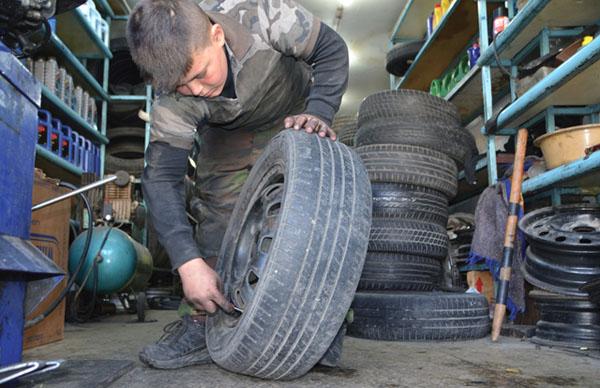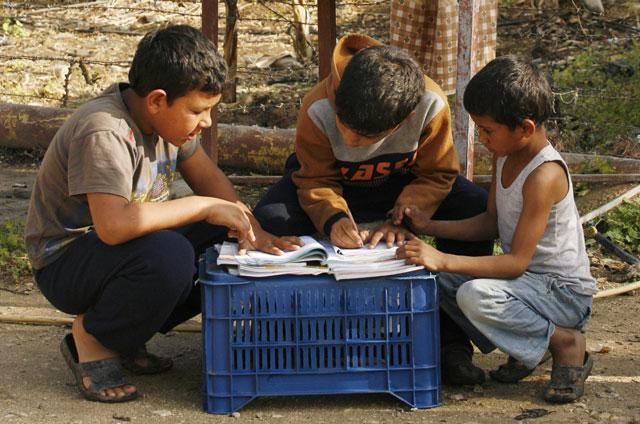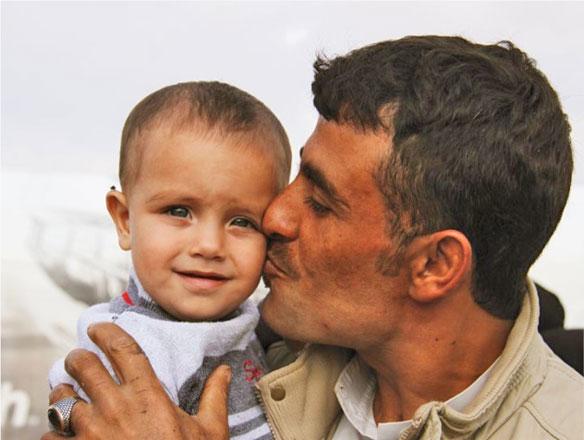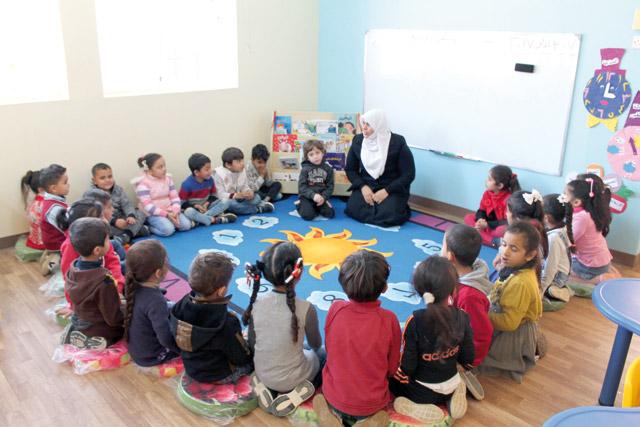You are here
75,000 vulnerable children in Jordan are out of school — report
By Khetam Malkawi - May 12,2015 - Last updated at May 12,2015

AMMAN — Over 75,000 vulnerable and disadvantaged children in Jordan are out of school — the majority of whom are at the pre-primary stage, but also significant numbers are in the primary and lower secondary levels, according to a report launched on Tuesday.
The Jordan Country Report on Out-of-School Children launched by UNICEF and the Education Ministry showed that 41 per cent of these children (45,862) are at the age of five, 1.1 per cent (9,661) are at primary school age, or between 6 and 11 years old, and 4.2 per cent (21,234) are aged 12 to 15.
The report also indicates that children who are attending lower secondary school have a higher risk of dropping out (5.6 per cent) than children attending primary school (2.9 per cent) due to several factors, such as low performance, child labour, early marriage or pregnancy.
The report, prepared by UNICEF in cooperation with the Education Ministry, includes children of illegal migrant workers but does not include refugees in the country.
It also includes children from poor socio-economic backgrounds, child labourers and children with disabilities.
“Jordan has made great progress for children’s education,” UNICEF Representative to Jordan Robert Jenkins said in a statement sent to The Jordan Times.
“However, vulnerable and disadvantaged children continue to be out of school... — [the] majority of them at the pre-primary stage. This is a great concern for all of us, as children who enter primary school without pre-primary experience are at a higher risk of dropping out,” Jenkins added.
Family disintegration and parents’ multiple marriages are highly significant socio-cultural barriers to child enrolment and the completion of basic education, according to the report.
Poverty is a significant economic factor that pushes children out of school, the report said, adding that direct and indirect costs of education, including tuition fees, were the most common reasons cited for non-enrolment and non-attendance in pre-primary and primary schools.
Disability was identified as a major barrier for school enrolment and participation despite the fact that 16,870 children with disabilities are enrolled in public schools, according to the Education Ministry.
Child labour is another constraint that contributes to school dropout occurrence and is closely linked to poverty and adult unemployment.
As confirmed by the Labour Ministry in 2010, 70 per cent of the families of working children are living beneath the extreme poverty line and 40 per cent of their fathers are unemployed.
Furthermore, child poverty is on the increase, reaching 19 per cent in 2012, according to the report.
“Migration can also contribute to long absences from school, low academic performance and eventual drop out,” the report added.
It recommended increasing access to and quality of pre-primary education, addressing issues of non-Jordanian out-of-school children, dealing with the issues hindering children from poor socio-economic backgrounds, and improving the national monitoring and reporting system on out-of-school children or those at risk of dropping out.
Related Articles
Poverty, gender discrimination and violence are keeping more than 12 million children in the Middle East out of school, despite efforts to expand education, the UN children's agency warned Wednesday.
AMMAN — Investing more in the first 1,000 days of every child’s life, can vastly improve their future wellbeing, happiness, educational
AMMAN — The Ministry of Education and UNICEF on Monday launched an eight-year executive plan (2017-2025) aimed at “universalising access” to


















